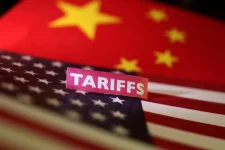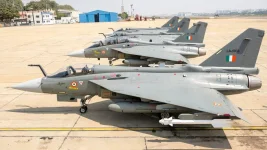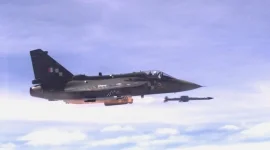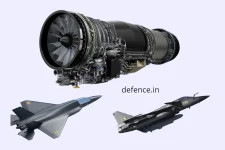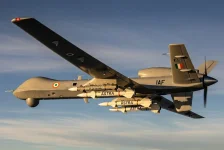- Views: 126
- Replies: 3
In a strategic move to accelerate the delivery of its indigenous fighter aircraft, Hindustan Aeronautics Limited (HAL) is integrating private sector companies into its manufacturing process, effectively establishing what its leadership calls an "invisible fourth production line" for the Tejas Mk1A program.
This collaboration is set to significantly increase production capacity to meet the growing demands of the Indian Air Force (IAF).
According to HAL's Chairman and Managing Director, D.K. Sunil, this new model involves outsourcing the complete manufacturing of the Tejas Mk1A's airframe and aerostructure to private firms.
This arrangement allows HAL to dedicate its own three assembly lines exclusively to the complex tasks of final integration and systems installation.
The strategy is projected to enable HAL to ramp up its output to an unprecedented 24 to 30 aircraft annually. This increased production rate is critical, especially following the Defence Acquisition Council's approval in late 2023 for the procurement of an additional 97 Tejas Mk1A jets for the IAF, on top of an earlier order for 83 aircraft.
Under this public-private partnership, private industry partners like Larsen & Toubro, Dynamatic Technologies, and VEM Technologies will deliver fully built airframe sections to HAL.
By receiving pre-fabricated structures, HAL can streamline its final assembly process, reduce overall production timelines, and allocate its resources more efficiently. This approach is vital for the IAF's modernization plans, particularly for replacing its aging fleet of MiG-21 fighters.
Looking ahead, HAL intends to deepen this collaboration for the more advanced Tejas Mk2 program. The outsourcing model for the Mk2 will be more comprehensive than that for the Mk1A.
Private companies will be tasked with manufacturing entire aircraft sections that are pre-fitted with internal components, including modular systems known as Line Replaceable Units (LRUs), electronics, fuel pipelines, and other essential subsystems.
This enhanced level of private sector involvement is designed to further shorten production cycles and simplify the final assembly stage at HAL facilities.
The initiative underscores HAL's growing confidence in India's private aerospace and defence ecosystem and reflects a broader national push towards self-reliance ('Atmanirbhar Bharat') in critical defence manufacturing.
By leveraging the capabilities of the private sector, HAL aims to ensure the timely induction of next-generation indigenous fighters into the Indian Air Force.

